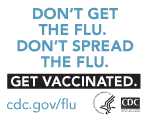CDC In the News
Public Health Grand Rounds on CDC Health Protection Goals
Published: May 1, 2007

CDC and the University of North Carolina will broadcast live via satellite and Webcast a series of Public Health Grand Rounds presenting real-world case studies that highlight the agency's health protection goals. To register, click here.
The first program in the series, Healthy Places Leading to Healthy People: Community Engagement Improves Health for All, airing May 11, 2 pm to 3pm, focuses on the agency's Healthy Communities Goal under the overarching Healthy Places Goal and features the community of Wabasso located in Indian River County, Florida.
Wabasso is a public health intervention success story. While the community is still an impoverished area with remaining environmental health risks, its residents now live in a healthier community due in part to the use of an innovative, community environmental health assessment tool developed by CDC and the National Association of County and City Health Officials (NACCHO).
This tool, the Protocol for Assessing Community Excellence in Environmental Health (PACE EH), enables local communities to identify, rank, and prioritize their own public health needs. Pilot-site coordinators throughout the country have praised the PACE-EH process for not only the impressive progress made by new local initiatives, but also for the coalition-building that brought previously competing, overlapping, and sometimes combative local agencies together to foster improved relationships among public health agencies and the community.
Over thirty communities and more than ten states have adopted the use of PACE EH; including the State of Florida whose state health department launched Florida's Pace program in 2004.
Through participation in Florida's Pace program, the Indian River County Public Health Department engaged residents of Wabasso in a process that empowered local involvement in assessing the environmental health needs of their own community.
This collaborative effort allowed the health department to spend more time advocating for the local community. As a result, public health officials were able to locate grants and volunteer services that helped Wabasso extend county water service, demolish abandoned homes, replace roofs, and provide new park equipment, park pavilions, streetlights, and sidewalks for its residents.
The Wabasso case study highlights how public health departments can be empowered to engage local communities in assessing their own environmental health needs. It demonstrates how a community-based approach can be used to protect and promote health and safety and prevent illness for all members of a community.
Public Health Grand Rounds is a collaborative program of the CDC and the University of North Carolina at Chapel Hill, School of Public Health.
Program partners include the Association of Schools of Public Health, the Association of State and Territorial Health Officials, the National Association of County and City Health Officials and the Public Health Training Network.
Each Public Health Grand Rounds program addresses a specific public health case. Past programs have included bioterrorism, obesity, autism, disaster preparedness, breast cancer, and food safety.
Save the following dates for the remaining Public Health Grand Rounds on CDC's Health Protection Goals:
- On June 15, in relation to CDC's Healthy People Goal, the Public Health Grand Rounds will feature a case study on the Coordinated Approach to Child Health (CATCH) program in Austin, TX.
- On September 28, in relation to CDC's Healthy World Goal, the Public Health Grand Rounds will feature a case study on the Care Program in Uganda.
- The November 2007 topic and date are to be determined.
Each PHGR broadcast will also be available for replay via Webcast.
Page last modified: May 1, 2007

